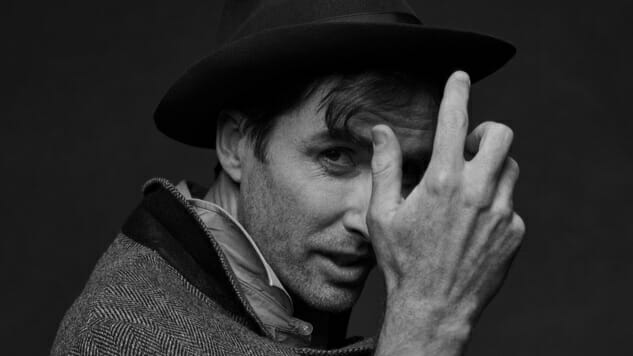Andrew Bird Is Doing Just Fine
The indie veteran talks about My Finest Work Yet
Photo by Amanda Demme
Andrew Bird takes the stage on Lady Bird Lake at dusk on the final weekend of SXSW, and a small portion of the 1.5 million bats that emerge every night from the nearby Congress Street Bridge are on patrol, keeping concertgoers on this crisp Austin night relatively bug-free. The Auditorium Shores series, with its huge stage and tons of locals taking advantage of the free admission, feels markedly different from the small club shows playing at every nook, cranny and makeshift parking lot around the city this week—and has Bird feeling nostalgic.
“I drove straight from Chicago to the Yard Dog,” he tells the crowd of his first time playing SXSW. “I had a good time back then. Then I had a lot of bad times here. Now I’m having a good time again. I just wanted to play for the citizens of Austin.”
Talking to the singer/songwriter/whistler/violinist in the lobby of his hotel earlier in the day, that theme of good times and bad, as well as lessons learned along the way, keep coming up. As he prepared to release his 12th solo studio album—My Finest Work Yet is out today on Loma Vista Recordings—he’s feeling good about life and remembering that it wasn’t always so.
“When I was 21, I was so absorbed in mastering the violin to the exclusion of everything else that I got tendonitis, and I was just a mess in the prime of my youth,” he says. “I was just physically a mess, and that’s when I started writing, remembering that I used to read and write and be outside and do those well-rounded things. And then I ran myself into the ground again because I had so many years of being in a conversion van, driving, playing dive bars—10 years slogging it out. And when finally people started coming, I realized I can’t let this slip away. That’s kind of a death-wish approach, like, I would come to Austin and play 16 shows in two days.”
He still tours—he has a handful of April dates before launching a European tour in June—but with a family at home, he’s able to do it a little more on his own terms. And while there are plenty of moments of darkness on the new album, that optimism has a way of finding moments to shine through both lyrically and musically. “I don’t enjoy being away from my family, but I do love being onstage,” he says. “And it’s really easy to get to that good place with these songs, so I’ll be pretty much playing the whole record.”
My Finest Work Yet was recorded in a live room to tape, with instrument mics bleeding into each other, giving the whole enterprise a wide-open sound and preventing any fixes in post-production. To pull that off, Bird gathered a group of veteran musicians: Tyler Chester on piano, Ted Poor on drums, Alan Hampton on bass and vocals, and Madison Cunningham on vocals.
“It’s not the first time I’ve done that,” he says. “We did that with Break It Yourself. But this one was different in the sense that I did a little more research on the front end to figure out how to do it right. In the past I did that, and it had kind of a scrappy quality to it, but this time I wanted it to have a high-fi quality, and that takes a lot of time. You spend your time in pre-production dialing it in as opposed to fixing it in the mix. There’s very little you can do in the mix, which I like because once the performance is over, so is my attention span.”
The reference point for the record is early-’60s jazz, gospel and soul albums. “I was studying the techniques of Rudy Van Gelder in recording with Miles Davis and John Coltrane and Lester Young,” Bird says. “Jazz is a big part of my diet. Whether you would put me in the jazz bin—probably not. It’s a very specific kind of jazz that I’ve been drawn to, but it’s always been a touchstone through my music.”
You can hear that influence on “Bloodless,” which may be Bird’s most political song to date—a reaction to a nation divided and leaders catering to the worst parts of humanity. “They’re profiting from your worry,” he sings, “Selling blanks down at the DMZ / Banking on the sound and fury / Wonder what it’s to do with me / … And it’s an uncivil war / Bloodless for now.”
-

-

-

-

-

-

-

-

-

-

-

-

-

-

-

-

-

-

-

-

-

-

-

-

-

-

-

-

-

-

-

-

-

-

-

-

-

-

-

-








































